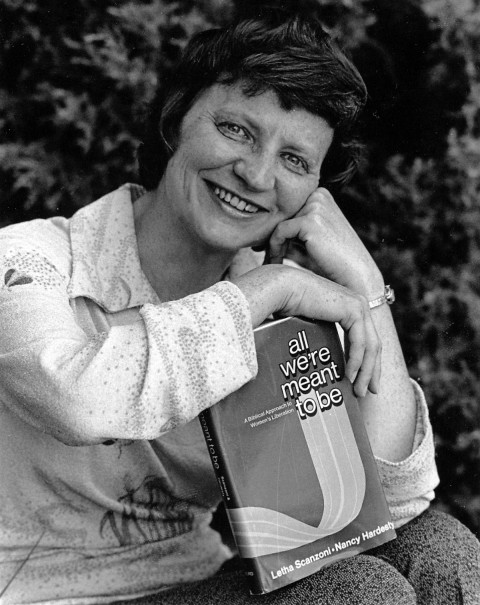My evangelical feminist friend Letha
There is no greater evidence of how much Letha Dawson Scanzoni valued relationships than her letters.

When I first walked into Letha Dawson Scanzoni’s apartment—which was, principally, a working office—I was astounded by how many books she’d packed into the floor-to-ceiling bookcases that lined all four walls of her small living room. I had traveled from Texas to her home in Norfolk, Virginia, to become better acquainted with the influential evangelical writer. While letting me peruse some of her files one summer afternoon, she also seemed to be interested in getting to know me, something I found unfathomable.
Over time I found out how much being in the company of these books meant to her. But she had another treasure. “I love letters!” she said to me, surrounded by papers scattered across her floor. In the closet were several large binders, bulging with letters she had received and copies of her replies, including correspondence with her co-authors Nancy Hardesty (All We’re Meant to Be) and Virginia Ramey Mollenkott (Is the Homosexual my Neighbor?). More letters were hidden away in her numerous filing cabinets, volumes upon volumes of correspondence with readers, unknown to most everyone. They speak to the intimacy she valued with her readers. Perhaps there is no greater evidence of how much she valued relationships than her letters.
Scanzoni, who died early this year at age 88, was born in 1935 in Pittsburgh. When she was a young girl, her parents encouraged her to dream big: “There isn’t anything you can’t do,” they told her. She took them at their word. At 12, she chose to play the trombone, an instrument that, at the time, only men played. Her father cheered her on, inviting her to practice in his gas station garage as he worked.




